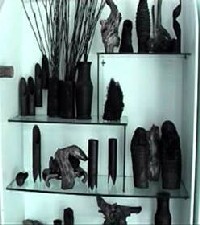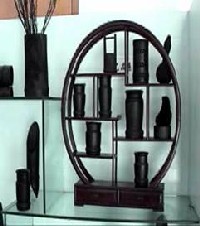|
Bamboo - The Wonder Grass Priyaranjan Sinha psinha@devalt.org This grass is called Bamboo-the wonder material for the 21st century. It forms the most diverse group of plants in the grass family. It belongs to the sub-family Bambusoidae of the family Poaceae (Graminae). Occurring naturally in every major continent except Europe, with over 1200 species, Bamboo is probably the best natural engineering material on this planet. It grows mainly in the tropics and subtropics - ranging from the plains to the snowy mountains. It is an enduring, versatile and highly renewable material that people have known and utilised for thousands of years. It is one of the fastest growing plants on the planet. For most purposes, bamboo can be harvested in 2-3 years, making it a truly renewable resource. Again, India is one of the largest producers of bamboo (second next to china) and there is wide scope to produce charcoal from bamboo. Bamboo charcoal is similar in properties too and can replace the high quality wood charcoal made from hard wood. This charcoal is strong and it is easy to process it into different shapes. The other resources like high quality wood and coconut shell are not suitable because of the restriction on and rapid exhaustion of the former and the scarcity of the latter resource. A lot of waste is generated when bamboo is processed for slivers, slats, agarbatti sticks, chopsticks, toothpicks, matchsticks etc. or for value-added products such as flooring tiles, reconstituted wooden blocks, chip and wafer boards. This waste may be in the form of nodes or the upper and lower portions of bamboo. This can be easily converted into value-added products such as bamboo charcoal. In fact, Bamboo charcoal not only depicts a new way to utilise bamboo, but it also protects the environment by reducing air and water pollution due to its excellent pollution adsorption qualities. This environment-friendly product - bamboo charcoal – could contribute to the economy and ecology of India in a sustainable manner.
Bamboo comes within the ambit of small scale industry, since it is small in scale and needs less investment. The traditional (for fuel, food, housing and shelter) as well as the industrial (for pulp and paper, construction materials, engineering materials and panel products) uses of bamboo are better known than its potential usage as bamboo charcoal. So, let us dwell upon the usage of bamboo charcoal and its associated products, e.g., bamboo vinegar. In fact, crude bamboo vinegar is a kind of brown-black liquid containing more than 300 organic compounds. Bamboo charcoal can be used as a fuel (for its high calorific value and smokeless nature) and as an adsorption product (or a purifying agent for water and air). It is also useful due to its electromagnetic shielding capacity. In terms of healthcare, it acts as an additive or make-up agent to improve the skin by cleaning and whitening. Besides, it can keep fruits fresh and also be made into artefacts for interior decoration purposes. I t could also check the humidity of air in a room. Bamboo charcoal is useful for improving agriculture and forestry as well, like improving the water permeability of soil and preserving water, adsorbing residues of pesticides and fertilisers, supplying micro elements and adjusting the pH of the soil. Bamboo charcoal also promotes the cultivation of beans, fruits, flowers and grass due to its catalytic properties. Bamboo vinegar can be obtained during the charcoal manufacturing process (pyrolysis) and divided into two layers. The upper layer is clarified bamboo vinegar, which is a light yellow or light brown liquid with special smell, and the lower layer is sediment-bamboo tar. The content of organic matters in purified bamboo vinegar is 10 ~ 20%. In accordance with the business requirements, the vinegar can be refined further to produce acetic acid, propionic acid, butyric acid, carbinol and organic solvents. The deposited bamboo tar is a kind of viscous oily liquid, containing a great amount of phenol substances and can be processed into mixed phenol products. Some of the main uses of bamboo vinegar are: sterilization, diminishing inflammation, deodorization and dermatophytosis. Hence with its myriad properties, bamboo is a Wonder Grass - in the true sense of the term. q |
||||||

